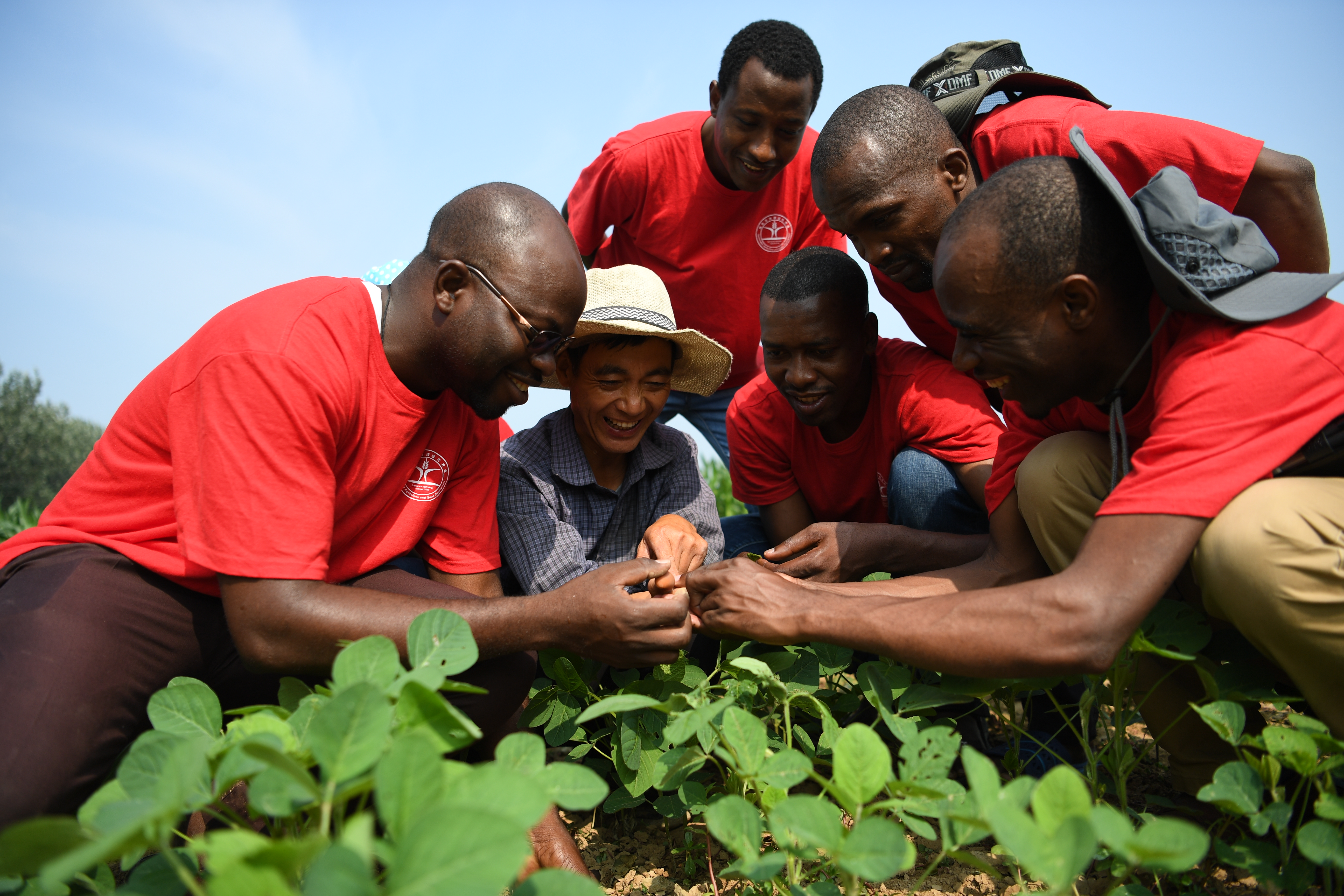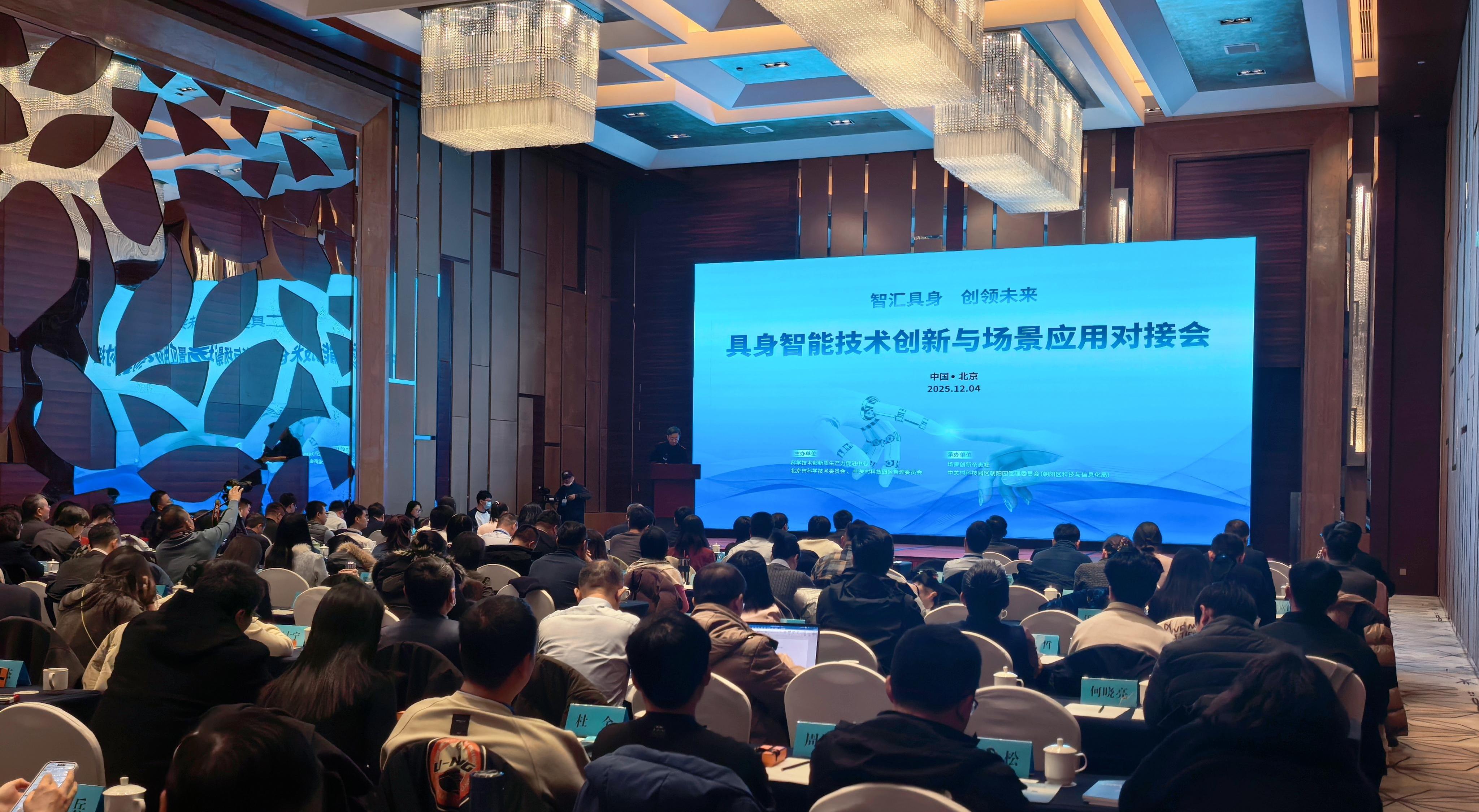STB Project: Replicable Model for Agricultural Cooperation

Saturnin Zigani, a student from Burkina Faso, and his classmates learn pest control technologies for soybeans from local farmers. (PHOTO: China Agricultural University)
By LU Zijian
Science and Technology Backyard (STB) was originally put forward by China Agricultural University (CAU) in 2009 as a new model for nurturing postgraduate students who study agriculture within the country. One of the criteria was that students had to stay in rural areas for two years to deal with grass roots situations farmers face daily.
STB has now evolved into a successful international cooperation model. More than 60 students from 12 African countries have been admitted to the Sino-Africa STB Project, and two STBs have been established in Malawi.
"The knowledge is pragmatically useful as the theories can be tightly integrated with practices in agricultural production. The farmers can acquire skills. More social benefits are brought about to both China and African countries," Jiao Xiaoqiang, project leader and associate professor at CAU, told Science and Technology Daily.
According to Jiao, the African students will study theoretical knowledge on campus for half a year, then go to the STB experimental station in Quzhou county, Hebei province and stay there for an entire growing and harvest season. After that, they are expected to go back to their home countries to practice and popularize what they have learned, before coming back to China for their graduation thesis.
Saturnin Zigani, a student from Burkina Faso, taught the skills and methods of planting millet he learned in China to his parents and neighbors. Millet serves as the staple food in Burkina Faso, but the production is generally low and after Zigani's intervention, millet yield doubled from only two tons per hectare to four tons.
Jiao said that the increase of millet yield means they don't have to change it for other high-yield varieties.
A Zambian student, Ngula David Muttendango, who worked in a large agricultural company before being admitted to the STB project, was aware that the crop yield of the company was much better than that of small farmers, and he wanted to change the situation.
Guided by Jiao, the student conducted experiments in the lab while sharing the agriculture technology with farmers at the same time. This knowledge exchange led to an improvement in the crop yield of the local farmers in Quzhou he worked with.
The Sino-Africa STB project was established in 2019. At that time, Zhang Fusuo, academician at the Chinese Academy of Engineering, who set up the first STB in Quzhou with his colleagues, began to think about whether the STB model could be applied to other countries, where small farmers play a key role in agricultural production.
Zhang's idea resonated with the Bill and Melinda Gates Foundation, who sent representatives to visit Quzhou to gain more insight into the agricultural growth model. The World Bank and the Food and Agriculture Organization of the United Nations are other interested parties who have also offered their support to this project.







